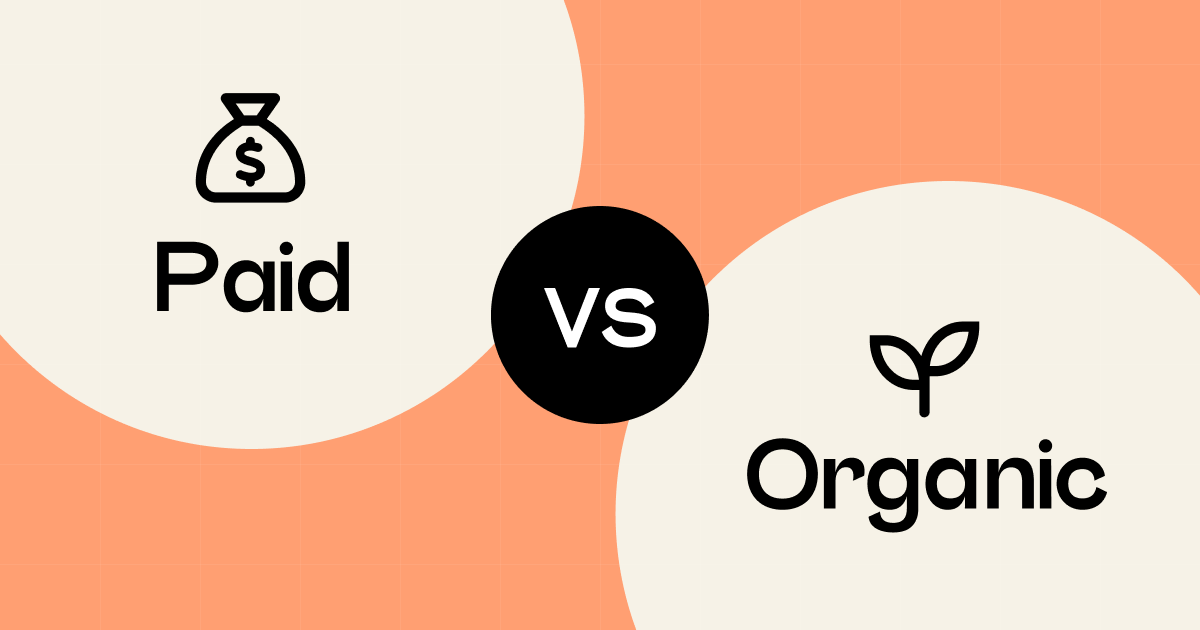In today’s digital-first world, businesses have more tools than ever to promote their products and services online. However, the question still remains: Should you focus on organic marketing or invest in paid marketing? Each has its own strengths, costs, and role in a solid marketing strategy. The right choice often depends on your business goals, budget, and timeline.
In this article, we’ll break down the pros and cons of organic marketing vs. paid marketing, compare their long-term value, and help you decide which strategy—or combination—is better for your business. We’ll also explore how SEO services play a crucial role in the organic marketing ecosystem.
What is Organic Marketing?
Organic marketing refers to strategies that bring visitors to your website naturally over time, without paying directly for advertising. It focuses on building long-term relationships, brand visibility, and credibility through valuable content and engagement.
Examples of organic marketing include:
- Search engine optimization (SEO)
- Social media posts
- Blogging and content marketing
- Email newsletters
- Word-of-mouth and customer referrals
The primary goal of organic marketing is to create a sustainable online presence that attracts potential customers over time.
What is Paid Marketing?
Paid marketing, also known as paid media or digital advertising, involves paying for visibility. You run ads across platforms like Google Ads, Facebook, Instagram, or LinkedIn, targeting specific audiences to drive traffic and conversions.
Examples of paid marketing include:
- Pay-per-click (PPC) advertising
- Social media ads
- Display ads and banners
- Sponsored content or influencer marketing
- Retargeting campaigns
Paid marketing offers faster results, more precise targeting, and scalability. However, it requires ongoing investment.
Organic Marketing: Pros and Cons
Pros:
- Cost-Effective in the Long Term
While it may take time and effort to build momentum, organic marketing requires no ad spend and can deliver sustainable traffic over time. - Builds Trust and Credibility
Customers are more likely to trust businesses that appear organically in search results or social media feeds, rather than through ads. - Improves SEO and Online Presence
Regular content creation, social engagement, and link-building through SEO services improve your website’s authority and visibility in search engines. - Compounds Over Time
Evergreen content (like blogs or videos) continues to attract traffic months or years after it’s published.
Cons:
- Slow to Show Results
It can take months to see significant traction from content marketing or SEO. - Requires Consistent Effort
Regular content updates, social media engagement, and SEO maintenance are essential for success. - Harder to Measure ROI
Organic efforts can be difficult to tie directly to specific sales or conversions.
Paid Marketing: Pros and Cons
Pros:
- Instant Visibility and Results
As soon as your campaign is live, you can start driving traffic and generating leads. - Highly Targeted Campaigns
Platforms like Google and Facebook allow you to target based on location, demographics, behavior, and even interests. - Easy to Scale
Increase your budget, and you’ll typically increase your reach and conversions—ideal for launching new products or seasonal offers. - A/B Testing Opportunities
Test headlines, images, CTAs, and more to optimize performance and increase ROI.
Cons:
- Costly Over Time
As soon as you stop paying, the traffic stops. Long-term reliance can become expensive. - Ad Fatigue
Audiences may grow tired of seeing the same ads, lowering effectiveness and increasing cost per click. - Can Seem Less Trustworthy
Some users scroll past ads or use ad blockers, making paid messages easier to ignore.
How SEO Services Strengthen Organic Marketing
Investing in a professional SEO service can amplify your organic marketing results. SEO experts help optimize your website content, structure, and backlinks so it performs better in search engines like Google.
Key benefits of SEO services include:
- Higher search rankings
- Increased organic traffic
- Better user experience
- Competitive keyword targeting
- Local SEO for geo-targeted customers
For businesses wanting long-term digital growth, combining content marketing with SEO services is a winning strategy.
When to Use Organic Marketing
Organic marketing is ideal if:
- You want to build lasting relationships with your audience
- You have a limited budget but can invest time
- You value credibility and long-term growth
- You’re focused on sustainable traffic and brand equity
Organic marketing is a must for businesses that want to create a lasting presence without depending solely on advertising dollars.
When to Use Paid Marketing
Paid marketing is best if:
- You need quick results or short-term boosts
- You’re launching a new product or offer
- You want to test new markets or audiences
- You have a flexible advertising budget
It’s a great way to drive leads and conversions fast, especially during key seasons or promotions.
Which is Better: Organic or Paid?
There’s no one-size-fits-all answer. The best marketing strategies often involve a balanced approach—leveraging the long-term benefits of organic efforts alongside the speed and targeting power of paid campaigns.
Start with organic marketing if you’re building your brand from the ground up and want to establish a credible digital footprint. Invest in SEO services early to lay a strong foundation.
Layer in paid marketing when you’re ready to accelerate results, launch something new, or capitalize on short-term opportunities.
Final Thoughts
Both organic and paid marketing play crucial roles in your business growth strategy. Organic builds trust and authority, while paid marketing delivers immediate traffic and conversions. When combined strategically, they create a powerful engine for brand awareness, lead generation, and revenue growth.
Evaluate your goals, budget, and resources—and don’t be afraid to start small. Test, learn, and optimize as you grow. And if you’re unsure where to begin, partnering with a digital marketing agency or expert in SEO services can set you on the right path to success.
Ultimately, it’s not about choosing one over the other—but about using each channel wisely to serve your broader marketing objectives.







